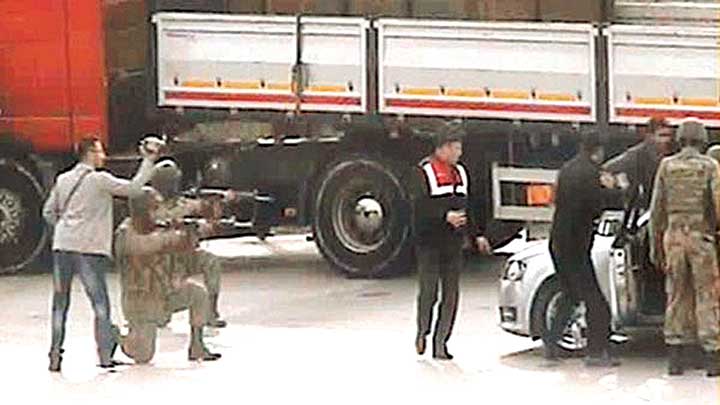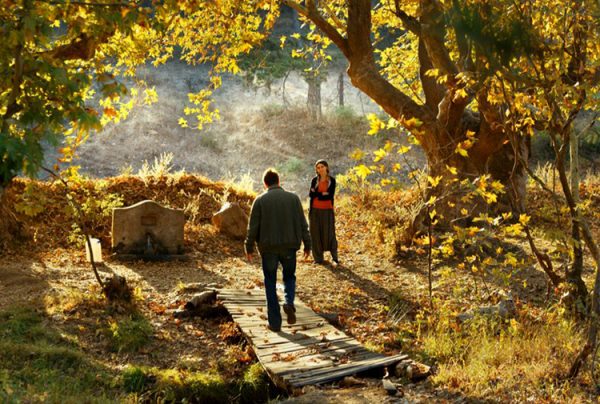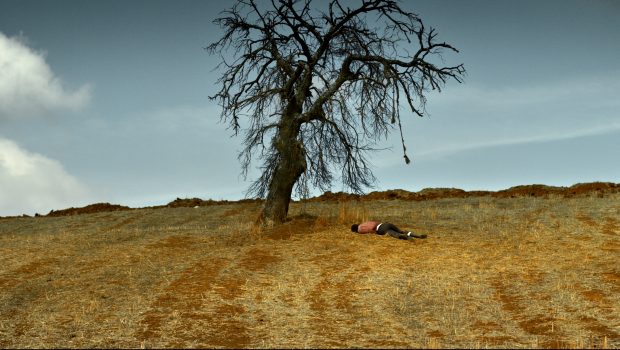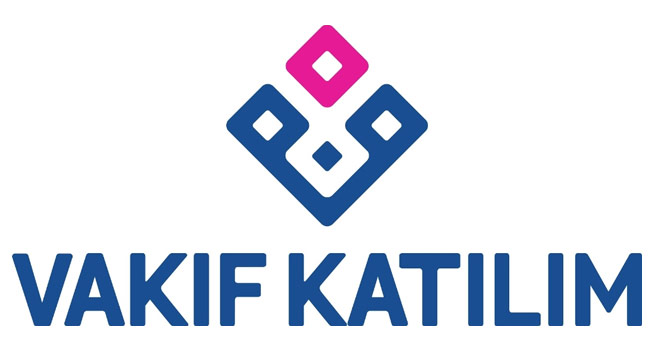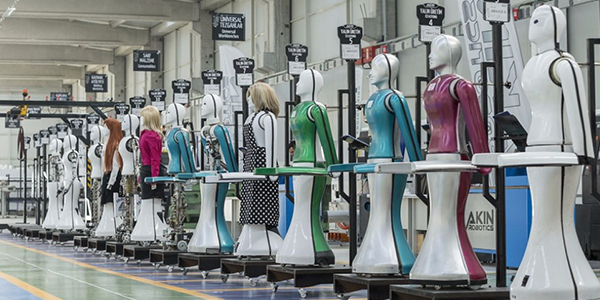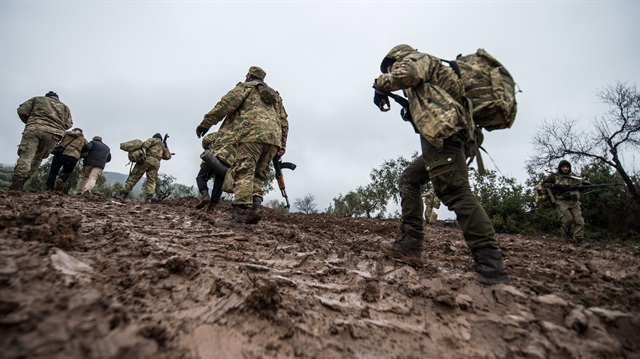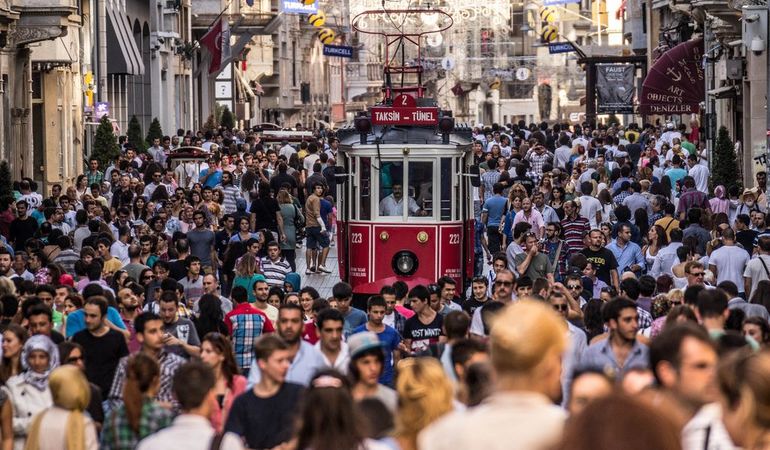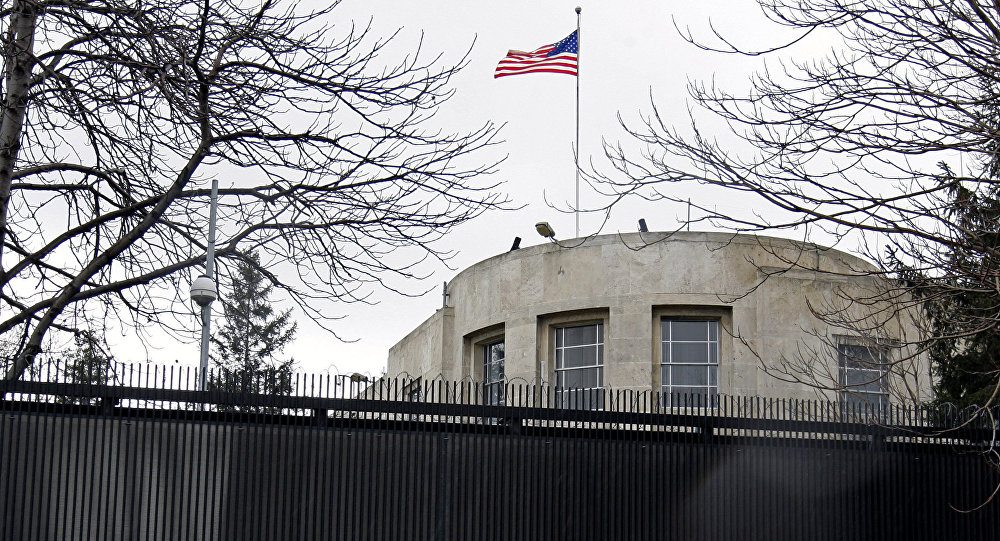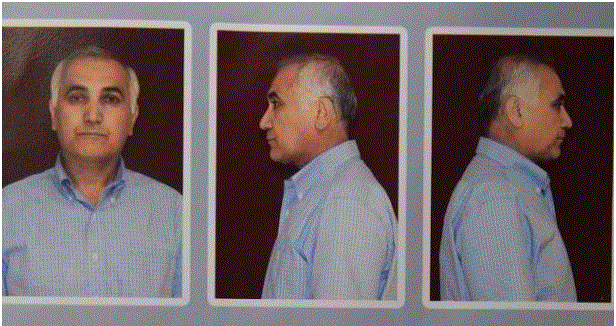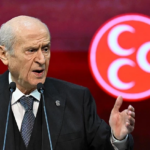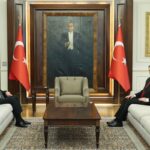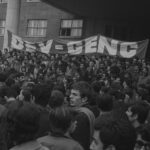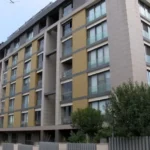Over the coming years historians will be making some initial attempts to understand recent Turkish events from a longer-term historical perspective. A good place to start will be to look into the entire period from February 2012 to July 2016 as a series of political struggles, both hidden and open, between unelected political forces trying to assert their will against the legitimate, democratically-elected representatives of the Turkish people. This pitted Gülen’s cult against the AKP (1).
Before December 2013 this conflict had been played out mostly in a covert way behind the official, opaque façade of Turkish state institutions. On the 17th and then the 25th of that month, however, Gülenist police, public prosecutors and judges suddenly burst out into the open and public attention with a sensational series of “corruption” cases against leading ministers and other officials which they appeared to have been secretly preparing (indeed fabricating) for a long time. Their audacity in trying to catch the government by surprise so as to arrest as many politicians as possible and virtually destroy the AKP leadership revealed to the public what Gülen was really after while also highlighting the gravity of the situation. Turkish politics has been dominated by this contest ever since. For its part, the AKP immediately, but haltingly, began the long process of rooting out Gülenists from state institutions. And with that effort, the long overdue process of carrying out fundamental reforms in Turkish state institutions gained impetus. In the coming years we will understand more completely whether or to what extent the AKP has been successful.
That is the broader framework, but there were many other events and developments that greatly complicated the situation faced by the AKP during those years. Even before the Turkish people emphatically stated their preferences for a second time in 2014 by electing Tayyip Erdoğan president in August, IS (Daesh) emerged from the Syrian conflict and imposed itself on the world’s awareness. Turkey had been one of the first states to declare Daesh a “terrorist” organization (in late 2013); then (probably in retaliation) in June 2014 Turkey’s Mosul consulate was overrun by the group, and Turkish officials were taken hostage.
But almost immediately after Daesh began to grab headlines, others began to try to link the Turkish government to that violent extremist organization, and the international press was a prime conduit for such allegations (2). In reality, this was simply a new, more sinister dimension added to the slander that had been aimed at the AKP since its 2001 founding (3).
Where and how did Gülen fit into this stuation? As everyone is now well aware, Gülen’s adherents were strong not only in the police, the judiciary, and the press. They were also in many command positions in the Turkish military (4). And we now know that the AKP had wanted to involve Turkey in the Syrian situation militarily since at least 2015 (5), but Turkish military officials had resisted. At the same time, the Turkish military were responsible for the country’s borders with Syria, the porousness of which the international press was giving so much attention to.
For example, Gülen’s operatives in the judiciary and gendarmerie were responsible for the January 2014 brouhaha surrounding trucks containing “material assistance” heading for Turkmen militiamen defending themselves against the Damascus régime in Northwest Syria (6). These were secret state shipments, handled by MIT (Turkey’s National Intelligence Organization). Astoundingly, they were stopped, and not once but twice, by Gülenists in the gendarmerie, who at gunpoint forced the MIT operatives in charge to unlock the trucks so that their contents could be photographed and exposed to the world as contraband “weapons… destined for IS” (see the banner picture above). This was an unparalleled violation of both state security and hierarchy for the sole purpose of falsely accusing Turkey of complicity with IS before the international public. And yet, there may have been still worse things that we remain ignorant of. In 2012-2016,, Gülen’s supporters in the Turkish security forces could well have aided and abetted not only smugglers, but also violent militants along the long Turkish border with Syria. Whether or to what extent they actually did this is an entirely open question that hopefully researchers will be able to illuminate more fully in the future.
Furthermore, some extremely unfortunate political developments were going hand in hand with the difficult, indeed precarious security situation. During the August 2014 election campaign, Selahattin Demirtaş had emerged as the most promising leader for the Turkish opposition. But in September 2014 he went to the U.S., held talks with unknown people, and then upon his return to Turkey immediately called his supporters onto the streets for early October 2014 demonstrations that were deliberately violent from the outset. The excuse was the situation in Kobani, which was besieged by IS, with the entire PKK propaganda machine accusing the Turkish government of aiding and abetting IS against the Kurds. In the midst of rising tensions, Selahattin Demirtaş pointed his finger at religious (and pro-AKP) Kurds in the Turkish Southeast. In the resulting pogrom, the PKK’s grassroots militants lynched or otherwise murdered 50 of their local political opponents (7).
Despite all the violence blatantly incited by the HDP, the eventual repulsion of the IS/Daesh attack on Kobani maintained Demirtaş’s and the HDP’s popularity into the 7th June 2015 parliamentary elections. The HDP ran as a political party (previously Kurdish parties had only fielded independent candidates), and easily entered parliament with an unheard-of 80 deputies after garnering nearly fifteen percent of the vote.
Demirtaş had based his and the HDP’s entire campaign on hostility to Erdoğan and the AKP, promising never to allow Erdoğan to have the presidential system that he wanted. This was bizarre in itself, because the AKP was simultaneously the PKK’s (and the HDP’s) partner and interlocutor in the still surviving peace negotiations. But the day after the election, Demirtaş took a tack for the worse. Infamously, he chose to threaten the AKP and President Tayyip Erdoğan, stating: “Don’t worry, we’ll only put you on trial, not hang you” (8) A month later, the PKK unilaterally declared the end of the ceasefire (that had endured for two years and a half) with the Turkish state. It declared “a new people’s revolutionary war” and ramped up its violence. The resulting conflict, which took place largely in Turkey’s Kurdish Southeast, saw the PKK resort to urban warfare by digging ditches and putting up barricades in city centers. The result was utter ruin for the Kurdish population of these townships, and their furious reaction wiped out much of the support that the HDP had elicited back in June 2015. In the 1st November 2015 elections, the HDP barely managed to beat 10 percent in order to retain its presence in parliament (though it lost one-fourth of its 80 seats). Now, most polls show that the HDP would fall well short of that ten percent minimum needed to enter parliament.
So another question that historians will have to answer in the coming years is this: Exactly what motivated Demirtaş to behave as he did in late-2014 and then during the 2015 election cycles? Was it his Marxism-Leninism that caused him to believe that the long-awaited Kurdish revolution was just around the corner, and hence to overplay his hand by over-committing to the PKK’s new war at the risk of ripping his party’s legality to shreds? Or was he simply not a very talented politician? Did he not fully understand the opportunity presented to him by the August 2014 presidential election if only he were to adhere to non-violent democratic politics? Or was a superior third party, such as the PKK or even Gülen, whispering things in his ear, maybe even threatening him? Whatever the answer may be, Demirtaş’s once promising political career will probably never be resurrected, not even if (unlikely as it is, since he was so explicit in his support of the new urban armed struggle) he gets out of jail sometime in the future.
Ultimately, the AKP and Tayyip Erdoğan may be said to have weathered extreme economic, political, and security tests in 2014-2015. Personally, I thought that the worst of the situation had come to an end with the November 2015 general election. Even though I knew that the issue of Gülen’s influence in Turkish state institutions had not reached any sort of definitive solution, I thought that the issue would be taken care of through bureaucratic and judicial processes as the AKP worked to reform state institutions.
I seem to have underestimated the depth of Gülen’s willingness to resort to extremely violent methods, even in the form of a military takeover.
(to be continued)
NOTES
(*) This article continues from the column published on 21 January 2016: https://serbestiyet.com/yazarlar/adam-mcconnel/gulens-cult-8-the-post-december-2013-struggle-against-gulens-institutional-power-756049
(1) This provides a counterpoint to the manner in which the entire history of the Turkish Republic should be understood. From its inception in 1923, the Turkish Republic represented an effort, on the part of a military and socio-political elite, to create a modern nation-state in its own image, engineering a (partly) new Turkish society through its control of state institutions. Then, after elections became democratic in 1950, the story became that same military and socio-political elite’s struggle to maintain its control over the said Turkish state institutions and the entire arc or trajectory of Turkish modernization. Only after 2007-2008, when that original “historical bloc” lost its influence over political decision-making, did the theme switch to the contest between Gülen and the AKP/Erdoğan.
(2) An NYT article, published on 15 September 2014 and authored by Ceylan Yeğinsu, suggested that Erdoğan and the AKP supported IS. This was only the most scandalously malevolent of a wave of such articles that had begun months earlier.
(3) https://serbestiyet.com/yazarlar/adam-mcconnel/back-in-2001-the-nyt-on-the-akp-and-erdogan-699846; https://serbestiyet.com/yazarlar/adam-mcconnel/reminiscences-of-bushs-middle-east-democracy-project-154625
(4) For information on this issue, see Yıldıray Oğur’s series of articles on the official indictments against participants in the coup attempt: https://serbestiyet.com/yazarlar/yildiray-ogur/15-temmuz-cati-ddianamesinden-ogrendiklerimiz-769820.
(5) https://serbestiyet.com/yazarlar/yildiray-ogur/turkiye-suriyede-neden-gec-kaldi-742958
(6) Refer to a series of articles that Yıldıray Oğur penned on this issue: https://serbestiyet.com/yazarlar/yildiray-ogur/tirlarin-arkasinda-ne-vardi-667986.
(7) https://serbestiyet.com/yazarlar/adam-mcconnel/the-rise-and-fall-of-selahattin-demirtas-1-661985
(8) This was a not-so-oblique reference to what the Turkish military had done to PM Adnan Menderes and two other ministers after the 1960 coup. The irony was that Demirtaş, a Kurdish politician, seemed to ally himself with the Turkish “historical bloc,” the same sector of Turkish society that had oppressed, denied the existence of, and even murdered Turkey’s Kurds for most of the Turkish Republic’s history: http://thekebabandcamel.com/the-international-medias-failure-on-the-7-june-2015-elections/
Yazıyı beğendiysen, patronumuz olur musun?
Evet, çok ciddi bir teklif bu. Patronumuz yok. Sahibimiz kar amacı gütmeyen bir dernek. Bizi okuyorsan, memnunsan ve devam etmesini istiyorsan, artık boş olan patron koltuğuna geçmen lazım.
Serbestiyet; Türkiye'nin gri alanı. Siyah ve beyazlar içinde bu gri alanı korumalıyız. Herkese bir gün gri alanlar lazım olur.




